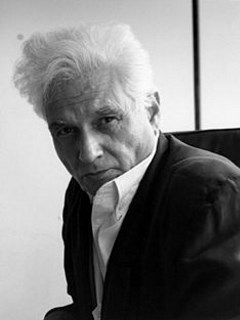
Publication details
Publisher: Springer
Place: Berlin
Year: 2000
Pages: 441-465
Series: Continental Philosophy Review
Full citation:
, "Differentiating Derrida and Deleuze", Continental Philosophy Review 33 (4), 2000, pp. 441-465.
Abstract
Repetition plays a significant, productive role in the work of both Derrida and Deleuze. But the difference between these two philosophers couldn't be greater: it is the difference between negation and affirmation, between Yes and No. In Derrida, the productive energy of repetition derives from negation, from the necessary impossibility of supplementing an absence. Deleuze recognizes the kind of repetition which concerns Derrida, but insists that there is another, primary form of repetition which is fully positive and affirmative. I will argue that there is nothing in Derrida's philosophy to match the affirmative, primary form of repetition articulated by Deleuze. Moreover, it is precisely this difference that accounts for the most exciting features of Deleuze's work: the possibility of breaking through to the other side of representation, beyond authenticity and inauthenticity, becoming-becoming.
Cited authors
Publication details
Publisher: Springer
Place: Berlin
Year: 2000
Pages: 441-465
Series: Continental Philosophy Review
Full citation:
, "Differentiating Derrida and Deleuze", Continental Philosophy Review 33 (4), 2000, pp. 441-465.




